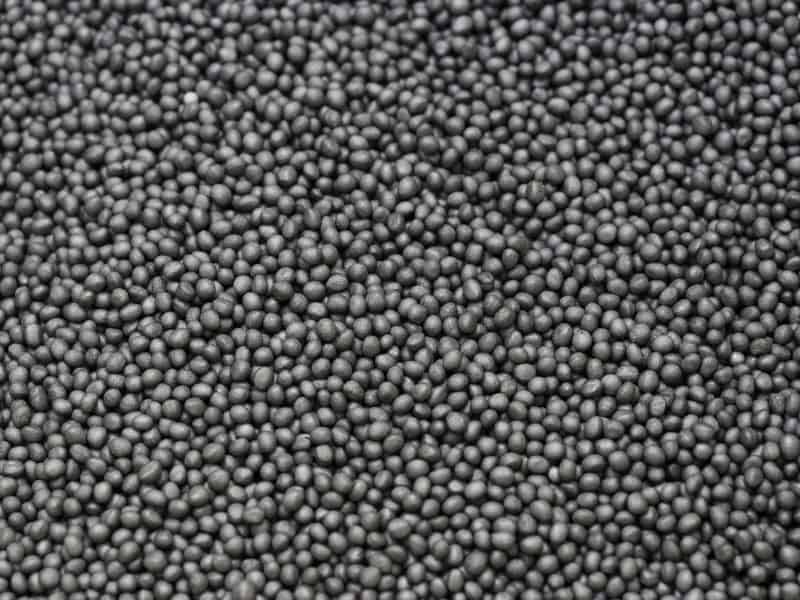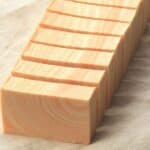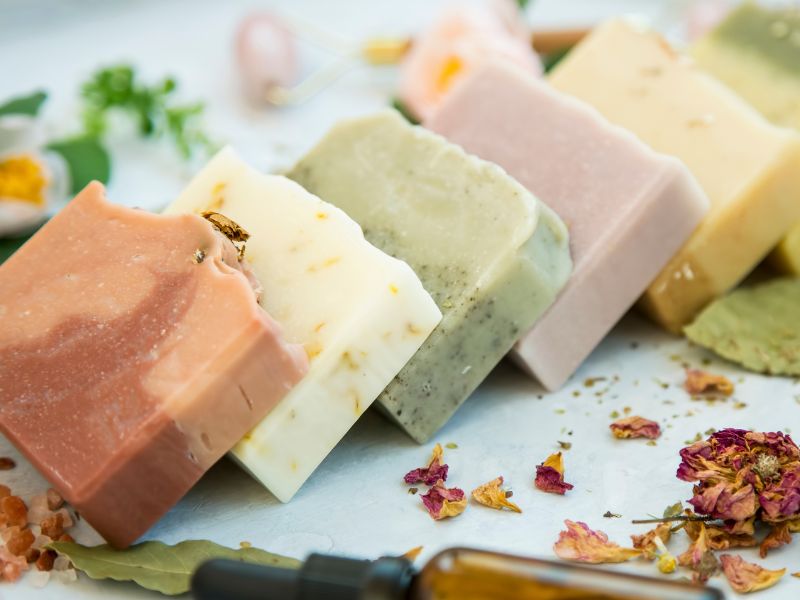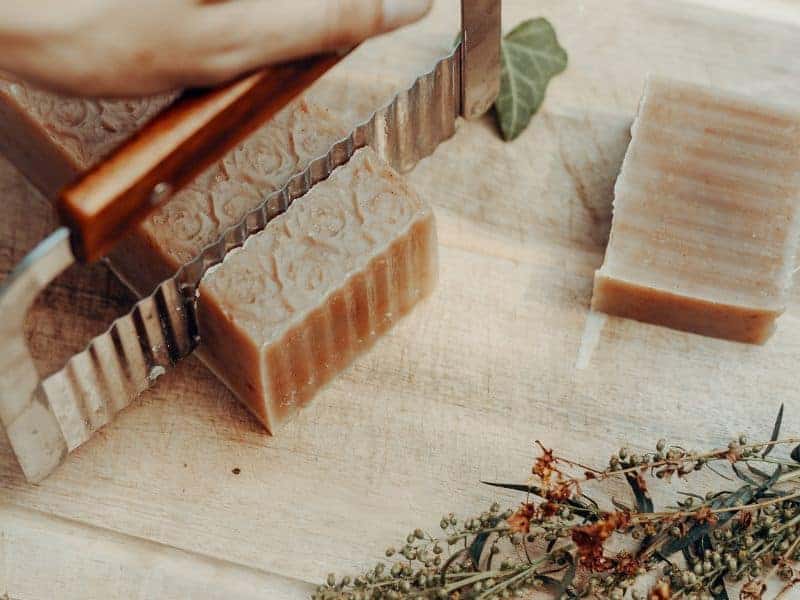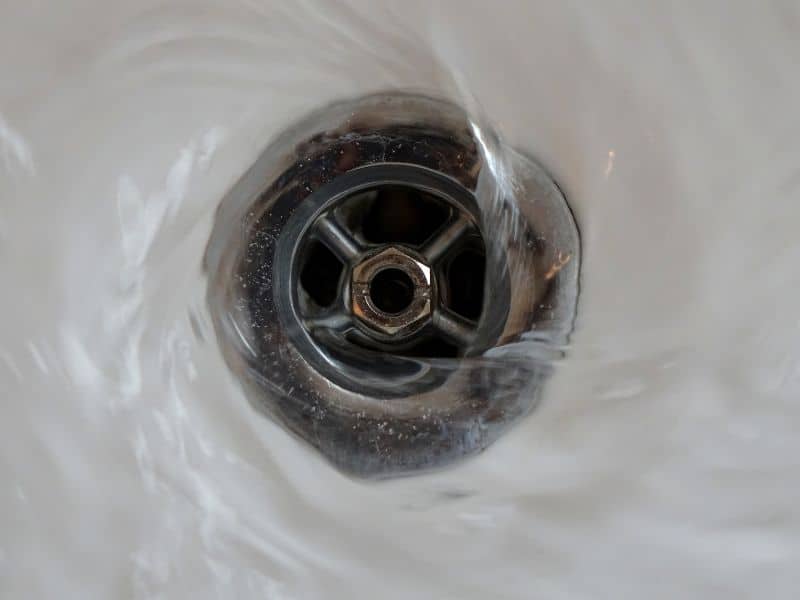Do you know how important it is to keep your skin clean and healthy? One way to do this is by using soaps that have something called exfoliants in them. Exfoliants are special ingredients that help remove old, dead skin cells and clean your pores, making your skin look fresh and new.
You can find many soaps with exfoliants in stores, but it’s also fun and easy to make your own at home! This way, you can choose exactly what goes into your soap.
This article will help you learn about the best natural exfoliants to use in your homemade soaps, whether you’re making soap for your face or your body.
What Can Be Used as Exfoliants In Soap?
Crafting soap at home offers a unique opportunity for personalization, including the selection of exfoliants. Natural ingredients are frequently chosen for their compatibility with skin and their eco-friendly nature. In this section, we will delve deeper into some of the most commonly used exfoliants in soap making.
Oatmeal: A Gentle Exfoliant for Sensitive Skin
Oatmeal is a top choice for soap making, particularly for those with sensitive skin. It provides a mild exfoliation that effectively removes dead skin cells without causing irritation. Rich in antioxidants and anti-inflammatory properties, oatmeal can help alleviate skin conditions such as eczema and psoriasis.
Poppy Seeds: An Intense Scrub for Body Soaps
Poppy seeds offer a more intense scrub compared to oatmeal, making them a perfect fit for body soaps. These tiny yet abrasive seeds are effective in removing dead skin cells and unclogging pores. Additionally, poppy seeds contain linoleic acid, a fatty acid that contributes to skin health.
Coffee Grounds: A Coarse Yet Gentle Exfoliant
Coffee grounds are another excellent choice for an exfoliant. They are coarse enough to scrub away dead skin cells but gentle enough to avoid skin damage. Coffee is also packed with antioxidants, which can help protect the skin from environmental stressors.
Sea Salt: A Natural Detoxifier and Strong Scrub
Sea salt is a natural detoxifier that can help cleanse the skin and unclog pores. Its coarse grains provide a robust scrub, making it excellent for body soaps. Sea salt is also rich in minerals such as magnesium, calcium, and potassium, which can nourish the skin.
Sugar: A Gentle Exfoliant that Promotes Skin Renewal
Sugar, both brown and white, is a popular exfoliant in soap making. Its fine grains gently remove dead skin cells, promoting skin renewal. Sugar also has the unique property of attracting moisture, helping to hydrate the skin and maintain its natural moisture balance.
Jojoba Beads: A Mild and Moisturizing Exfoliant
Jojoba beads, derived from jojoba oil, offer a mild scrub suitable for all skin types. They are moisturizing and won’t strip the skin of its natural oils. Jojoba beads are a great choice for those looking for a gentle yet effective exfoliant.
Pumice Powder: A Strong Exfoliant for Deep Cleansing
Pumice powder, a type of volcanic rock ground into a fine powder, is a strong exfoliant ideal for body soaps. It effectively removes dead skin cells, leaving the skin feeling smooth and rejuvenated. Pumice powder is a natural mineral, making it an eco-friendly choice for soap making.
What Exfoliants Are Best for The Face?
The skin on our face is more sensitive than the rest of our body, necessitating a softer approach to exfoliation. Here, we explore some of the best exfoliants for face soaps, each offering unique benefits to keep your skin looking its best.
Lemon: A Natural Astringent and Brightener
Lemon is a natural astringent that can help tighten the pores and brighten the skin. It’s also rich in vitamin C, a potent antioxidant that can help protect the skin from environmental damage. When incorporated in face soaps, lemon provides a gentle exfoliation that leaves the skin feeling fresh and invigorated.
Brown Sugar: A Gentle Scrub for Sensitive Skin
Brown sugar is another excellent choice for face soaps. Its fine grains provide a gentle scrub that’s suitable for sensitive skin. Brown sugar also contains glycolic acid, a natural alpha-hydroxy acid that can help stimulate cell turnover and keep your skin looking youthful and radiant.
Colloidal Oatmeal: A Soothing Exfoliant for Irritated Skin
Colloidal oatmeal, finely ground oatmeal suspended in liquid, creates a lotion-like texture. This makes it an excellent choice for face soaps, as it provides a very gentle exfoliation. Colloidal oatmeal is also rich in beta-glucans, which can help reduce skin inflammation and promote skin healing, making it ideal for irritated or sensitive skin.
Jojoba Beads: A Mild and Moisturizing Exfoliant
Jojoba beads are derived from jojoba oil, a liquid produced in the seed of the jojoba plant. These beads offer a mild scrub, making them suitable for sensitive skin types. Jojoba oil is similar to the oil our skin naturally produces, so it’s moisturizing without being greasy, leaving your skin feeling soft and hydrated.
Green Tea: An Antioxidant-Rich Exfoliant
Green tea is a natural exfoliant that’s rich in antioxidants. It can help protect the skin from environmental damage, reduce inflammation, and soothe irritation. When used in face soaps, green tea leaves provide a gentle scrub that can help refresh and rejuvenate the skin.
Honey: A Natural Humectant and Exfoliant
Honey is a natural humectant that draws moisture to the skin, keeping it hydrated and supple. It also acts as a gentle exfoliant, removing dead skin cells and revealing fresh, glowing skin underneath. Honey’s antibacterial properties can also help keep your skin clear and healthy.
Almond Meal: A Gentle Exfoliant with Nourishing Properties
Almond meal, made from finely ground almonds, is a fantastic natural exfoliant. It’s gentle enough for the face and is packed with vitamin E and healthy fats, which can help nourish and moisturize the skin. Almond meal provides a gentle scrub, leaving your skin feeling soft and smooth.
What Exfoliants Are Best for The Body?
Body soaps can accommodate stronger exfoliants, which are more effective at removing dead skin cells. Here, we explore some of the best exfoliants for body soaps, each offering unique benefits to keep your skin smooth and revitalized.
Sea Salt: A Natural Detoxifier and Strong Scrub
Sea salt is a natural detoxifier that can help cleanse the skin and unclog pores. Its coarse grains provide a robust scrub that’s excellent for body soaps. Sea salt is also rich in minerals like magnesium, calcium, and potassium, which can help nourish the skin and improve its overall health.
Pumice Powder: A Volcanic Rock for Deep Exfoliation
Pumice powder, a type of volcanic rock ground into a fine powder, is a strong exfoliant that’s excellent for removing dead skin cells. It provides a deep cleanse and leaves the skin feeling smooth and rejuvenated. Pumice powder is also a natural mineral, making it an eco-friendly choice for soap making.
Coffee Grounds: A Strong Scrub with Added Benefits
Coffee grounds are a fantastic exfoliant for body soaps. They provide a strong scrub that can help remove dead skin cells and cellulite. Plus, the caffeine in coffee can help stimulate blood flow, improving the skin’s overall appearance and health.
Walnut Shells: A Powerful Exfoliant with Antioxidant Properties
Walnut shells are another natural exfoliant that’s great for body soaps. They’re finely ground into a powder, providing a strong scrub that can help remove dead skin cells. Walnut shells are also rich in antioxidants, which can help protect the skin from environmental damage.
Chia Seeds: A Gentle Scrub Packed with Omega-3
Chia seeds are known for their rich omega-3 content, but they also make a great exfoliant. When used in soap, they provide a gentle scrub that can help remove dead skin cells. Plus, they’re packed with antioxidants that can help protect the skin from environmental damage.
Sugar Crystals: A Sweet Scrub for Smooth Skin
Sugar crystals, both brown and white, are a popular choice for body soaps. They provide a strong scrub that effectively removes dead skin cells, leaving your skin feeling smooth and rejuvenated. Sugar also attracts moisture, helping to hydrate the skin and maintain its natural moisture balance.
Ground Apricot Kernels: A Natural Scrub for Radiant Skin
Ground apricot kernels are a natural exfoliant that’s great for body soaps. They’re finely ground into a powder, providing a strong scrub that can help remove dead skin cells. Apricot kernels are also rich in antioxidants and essential fatty acids, which can help nourish the skin and improve its overall health.
What Are the Best Natural Exfoliants?
Natural exfoliants are an excellent choice for homemade soap recipes. They are gentle on the skin, environmentally friendly, and often come with added skincare benefits. Let’s delve into some of these natural exfoliants.
Jojoba Beads: A Gentle Scrub for Sensitive Skin
Jojoba beads, derived from jojoba oil produced in the seed of the jojoba plant, offer a mild scrub suitable for sensitive skin types. Jojoba oil closely resembles the oil our skin naturally produces, making it moisturizing without leaving a greasy residue.
Chia Seeds: Omega-3 Rich Exfoliant
Chia seeds, known for their high omega-3 content, also serve as a great exfoliant. When incorporated into soap, they provide a gentle scrub that aids in removing dead skin cells. Additionally, they’re packed with antioxidants that can help protect the skin from environmental damage.
Coconut Oil: Hydrating and Exfoliating
Coconut oil is a versatile ingredient in soap making. It provides hydration along with exfoliation, leaving your skin feeling soft and smooth. Coconut oil is also rich in fatty acids, which can nourish the skin and improve its barrier function.
Olive Oil: Nourishing and Softening
Olive oil is another excellent choice for soap making. It’s packed with antioxidants and vitamins that can nourish the skin. When mixed with a more abrasive exfoliant, like sea salt or coffee grounds, olive oil can help soften the scrub, making it more suitable for sensitive skin.
Shea Butter: Luxurious Moisturization
Shea butter, a fat extracted from the nuts of the shea tree, is incredibly moisturizing and can help soften the skin. When used in soap, shea butter provides a creamy lather that feels luxurious on the skin.
Cocoa Butter: Moisturizing with a Delightful Aroma
Cocoa butter, a natural fat derived from the cocoa bean, is incredibly moisturizing and can help create a hard, long-lasting bar of soap. Plus, it has a natural chocolate scent that can add a delightful aroma to your homemade soaps.
Pumice Powder: A Strong, Eco-Friendly Exfoliant
Pumice powder, a type of volcanic rock ground into a fine powder, is a strong exfoliant that’s excellent for removing dead skin cells. Pumice powder is also a natural mineral, making it an eco-friendly choice for soap making.
Almond Meal: A Gentle, Nourishing Exfoliant
Almond meal, made from ground almonds, is a fantastic natural exfoliant. It’s packed with vitamin E and healthy fats, which can nourish and moisturize the skin. Almond meal provides a gentle scrub, making it suitable for both face and body soaps.
Honey: A Natural Humectant and Exfoliant
Honey is a natural humectant that draws moisture to the skin, keeping it hydrated and supple. It also acts as a gentle exfoliant, removing dead skin cells and revealing fresh, glowing skin underneath. Honey’s antibacterial properties can also help keep your skin clear and healthy.
Ground Apricot Kernels: A Natural Scrub for Radiant Skin
Ground apricot kernels are a natural exfoliant that’s great for body soaps. They’re finely ground into a powder, providing a strong scrub that can help remove dead skin cells. Apricot kernels are also rich in antioxidants and essential fatty acids, which can help nourish the skin and improveits overall health.
Frequently Asked Questions
Lemon is not only natural and easily accessible. Lemon makes a great exfoliant that can tighten open pores and even skin tone. It works great in combination with sugar which also works as a natural exfoliator that is useful for removing dead skill cells.
Not exfoliating is less than ideal if you are trying to get clear skin. When you stop exfoliating you will get a buildup of dead or dull skin cells that will leave your skin with clogged pores and a dry or patchy appearance. This can lead to bumps or an appearance of aging.
While exfoliating has its benefits sometimes you can do it too much. You can over exfoliate and aggravate the skin causing redness and irritation. You should not exfoliate more than once per day and you should use an exfoliant designed for that specific part of the body. You do not want to use a rough body exfoliant on your face for example.
Exfoliating is great for your skin but you can get too much of a good thing. Over-exfoliated skin can take anywhere from a few days to a few weeks to heal. The length of time required to heal depends on how much damage was done. You can avoid this problem by using the correct exfoliant for each part of your body and exfoliating no more than once per day.
Conclusion
In conclusion, Making your own soaps with natural exfoliants is a fun and rewarding project. You end up with a soap that’s just right for your skin, and you also help the environment by using natural ingredients.
There are many different natural exfoliants you can choose from. Some, like jojoba beads and almond meal, are gentle and perfect for face soaps. Others, like pumice powder and coffee grounds, are stronger and great for body soaps.
The best exfoliant for you depends on your skin type and what you like. So, don’t be afraid to try different ones and find your favorite.

